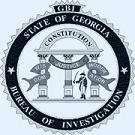The Uniform Crime Reporting (UCR) program compiles official data on crime in the United States, published by the Federal Bureau of Investigation (FBI). UCR is "a nationwide, cooperative statistical effort of nearly 18,000 city, university and college, county, state, tribal, and federal law enforcement agencies voluntarily reporting data on crimes brought to their attention".

The Bureau of Economic Analysis (BEA) of the United States Department of Commerce is a U.S. government agency that provides official macroeconomic and industry statistics, most notably reports about the gross domestic product (GDP) of the United States and its various units—states, cities/towns/townships/villages/counties, and metropolitan areas. They also provide information about personal income, corporate profits, and government spending in their National Income and Product Accounts (NIPAs).
The National Institute of Justice (NIJ) is the research, development, and evaluation agency of the United States Department of Justice (DOJ).

The Bureau of Intelligence and Research (INR) is an intelligence agency in the United States Department of State. Its central mission is to provide all-source intelligence and analysis in support of U.S. diplomacy and foreign policy. INR is the oldest civilian element of the U.S. Intelligence Community and among the smallest, with roughly 300 personnel. Though lacking the resources and technology of other U.S. intelligence agencies, it is "one of the most highly regarded" for the quality of its work.
The Research and Innovative Technology Administration (RITA) is a unit of the United States Department of Transportation (USDOT). It was created in 2005 to advance transportation science, technology, and analysis, as well as improve the coordination of transportation research within the department and throughout the transportation community.

General Register Office or General Registry Office (GRO) is the name given to the civil registry in the United Kingdom, many other Commonwealth nations and Ireland. The GRO is the government agency responsible for the recording of vital records such as births, deaths, and marriages, which may also include adoptions, stillbirths, civil unions, etc., and historically, sometimes included records relating to deeds and other property transactions.

The Philippine Statistics Authority is the central statistical authority of the Philippine government that collects, compiles, analyzes, and publishes statistical information on economic, social, demographic, political affairs, and general affairs of the people of the Philippines, as well as enforcing the civil registration functions in the country.

Coast Guard Intelligence (CGI) is the military intelligence branch of the United States Coast Guard, and a component of the Central Security Service of the United States Department of Defense.

National Crime Records Bureau (NCRB) is an Indian government agency responsible for collecting and analyzing, crime data as defined by the Indian Penal Code (IPC) and Special and Local Laws (SLL). NCRB is headquartered in New Delhi and is part of the Ministry of Home Affairs (MHA) under the Government of India. Vivek Gogia (IPS) is current Director of National Crime Record Bureau.

The Georgia Bureau of Investigation (GBI) is the state bureau of investigation of the U.S. state of Georgia. It is an independent, statewide agency that provides assistance to Georgia's criminal justice system in the areas of criminal investigations, forensic laboratory services, and computerized criminal justice information. Its headquarters is located in unincorporated DeKalb County, near Decatur and in Greater Atlanta.

The Bureau of Justice Statistics (UJC) of the U.S. Department of Justice is the principal federal agency responsible for measuring crime, criminal victimization, criminal offenders, victims of crime, correlates of crime, and the operation of criminal and civil justice systems at the federal, state, tribal, and local levels. Established on December 27, 1979, BJS collects, analyzes, and publishes data relating to crime in the United States. The agency publishes data regarding statistics gathered from the roughly fifty-thousand agencies, offices, courts, and institutions that together comprise the U.S. justice system.

The Oklahoma State Bureau of Investigation (OSBI) is an independent state law enforcement agency of the government of Oklahoma. The OSBI assists the county sheriff offices and city police departments of the state, and is the primary investigative agency of the state government. OSBI works independent of the Oklahoma Department of Public Safety to investigate criminal law violations within the state at the request of statutory authorized requesters. The OSBI was created in 1925 during the term of Governor Martin E. Trapp.

Justice Research and Statistics Association (JRSA) is a national nonprofit organization of state Statistical Analysis Centers, researchers, and practitioners throughout government, academia, and justice organizations. Justice Research and Statistics Association's members form a network of justice professionals dedicated to policy-relevant research and practice.
The counter-terrorism page primarily deals with special police or military organizations that carry out arrest or direct combat with terrorists. This page deals with the other aspects of counter-terrorism:
The Oklahoma Criminal Justice Resource Center (OCJRC) was an agency of the State of Oklahoma. Dissolved on July 1, 2009, the Center was a division of the Oklahoma Legislative Service Bureau with its director appointed by the Oklahoma Sentencing Commission (OSC). As its primary responsibilities, the OCJRC provides research and analysis relating to the state's criminal justice system and integrated, customizable records management software for law enforcement in the form of the Offender Data Information System (ODIS). OCJRC serves as the state's Statistical Analysis Center (SAC), the official point of contact with the federal Bureau of Justice Statistics. As the state's SAC, OCJRC is a member of the Justice Research and Statistics Association.

The California Department of Justice is a statewide investigative law enforcement agency and legal department of the California executive branch under the elected leadership of the Attorney General of California (AG) which carries out complex criminal and civil investigations, prosecutions, and other legal services throughout the US State of California. The department is equivalent to the state bureaus of investigation in other states.
The Federal Statistical System of the United States is the decentralized network of federal agencies which produce data and official statistics about the people, economy, natural resources, and infrastructure of the United States. It is led by the Chief Statistician of the United States (CSOTUS) and the Interagency Council on Statistical Policy, and is composed of 13 principal statistical agencies and 3 recognized statistical units, 24 Statistical Officials, approximately 100 additional Federal statistical programs engaged in statistical activities, and several cross system interagency and advisory bodies.
Intelligence sharing is "the ability to exchange intelligence, information, data, or knowledge among Federal, state, local or private-sector entities as appropriate." Intelligence sharing also involves intergovernmental bilateral or multilateral agreements and through international organizations. Intelligence sharing is meant to facilitate the use of actionable intelligence to a broader range of decision-makers.

ICPSR, the Inter-university Consortium for Political and Social Research, was established in 1962. An integral part of the infrastructure of social science research, ICPSR maintains and provides access to a vast archive of social science data for research and instruction. Since 1963, ICPSR has offered training in quantitative methods to facilitate effective data use. The ICPSR Summer Program in Quantitative Methods of Social Research offers a comprehensive curriculum in research design, statistics, data analysis, and methodology. To ensure that data resources are available to future generations of scholars, ICPSR curates and preserves data, migrating them to new storage media and file formats as changes in technology warrant. In addition, ICPSR provides user support to assist researchers in identifying relevant data for analysis and in conducting their research projects.











